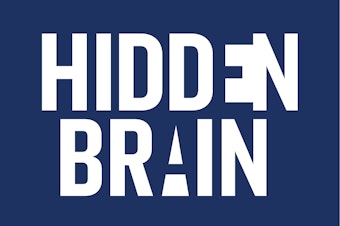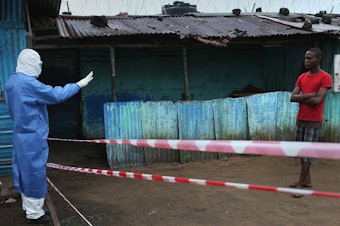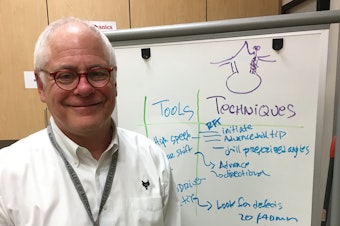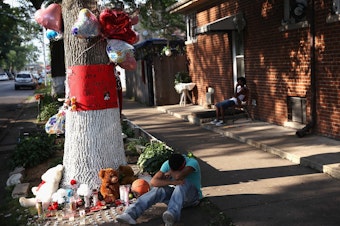Jennifer Schmidt
Stories
-

Sex Machines: Love In The Age Of Robots
From stone statues to silicone works of art, we have long sought solace and sex from inanimate objects. Time and technology have perfected the artificial lover: today we have life-size silicone love dolls so finely crafted they feel like works of art. Now, with the help of robotics and artificial intelligence, these dolls are becoming even more like humans. This week, we revisit our 2019 story about the history of the artificial lover, and consider what love and sex look like in the age of robots.
-

Playing Tight And Loose: How Rules Shape Our Lives
We all know people who prefer to follow the rules, and others who prefer to flout them. Psychologist Michele Gelfand defines these two ways of being as "tight" and "loose." She says the tight/loose framework can help us to better understand individuals, businesses, and even nations. This week, we look at the core traits of tight and loose worldviews, and how they may shape our lives — from interactions with our spouses to global efforts to fight the coronavirus.
-

Close Enough: The Lure of Living Through Others
A silver lining of social distancing: you may have more time and space to pursue the projects you've bookmarked on your web browser. Whether your goal is to build a barn door or to update your makeup routine, online tutorials have made it easier than ever to bring the world into your living room or kitchen or bedroom. But a curious thing can happen when we watch experts doing expert things. This week, we explore the dangers and the delights of vicarious living, with a favorite episode from 2019.
-

An Unfinished Lesson: What The 1918 Flu Tells Us About Human Nature
A virus is more than a biological organism. It's a social organism. It detects fissures in societies and fault lines between communities. Historian Nancy Bristow shares the lessons about human behavior that we can take away from a century-old pandemic.
-

Panic In The Street: How Psychology Shaped The Response To An Epidemic
It sounds like a movie plot: police discover the body of a young man who's been murdered. The body tests positive for a deadly infectious disease. Authorities trace the killing to a gang. They race to find the gang members, who may also be incubating the virus. This week on Hidden Brain, we revisit our 2016 story about disease, panic, and how a public health team used psychology to confront an epidemic.
-

The Cowboy Philosopher: A Tale Of Obsession, Scams, And Family
In 2009, an old man died in a California nursing home. His obituary included not just his given name, but a long list of the pseudonyms he'd been known to use. In this episode, which we originally released in 2019, we trace the life of Riley Shepard, a hillbilly musician, writer, small-time con man and, perhaps, a genius.
-

When Things Click: The Power Of Judgment-Free Learning
There can be a lot of psychological noise involved in teaching. But what it we replaced all that mental clutter...with a click? This week, we bring you a 2018 episode exploring an innovative idea about how we learn. It will take us from a dolphin exhibit in Hawaii to a top teaching hospital in New York. It's about a method to quiet the noise that can turn learning into a minefield of misery.
-

Emotional Currency: How Money Shapes Human Relationships
What's the point of money? The answer might seem obvious: we need it to get paid for our work, and to buy the things we need. But there's also a deeper way to look at the role of money in our lives. This week we explore an anthropologist's take on the origin story of money. What if the cash and coins we carry are not just tools for transactions, but manifestations of human relationships?
-

On The Knife's Edge: Using Therapy To Address Violence Among Teens
What would drive someone to take another person's life? When researchers at the University of Chicago asked that question, the answer was a laundry list of slights: a stolen jacket, or a carelessly lobbed insult. It made them wonder whether crime rates could be driven down by teaching young men to pause, take a deep breath, and think before they act. In this 2017 episode, we go inside a program that teaches Chicago teens to do just that. We also explore what research has found about whether this approach actually works.
-

In The Heat Of The Moment: How Intense Emotions Transform Us
In a fit of anger or in the grip of fear, many of us make decisions that we never would have anticipated. This week, we look at situations that make us strangers to ourselves — and why it's so difficult to remember what these "hot states" feel like once the moment is over.